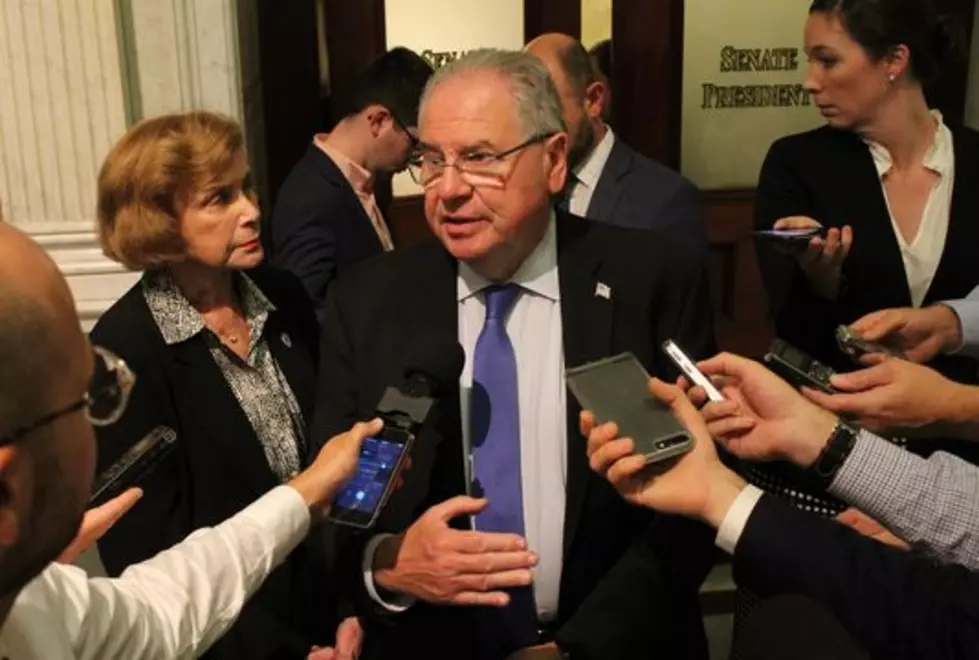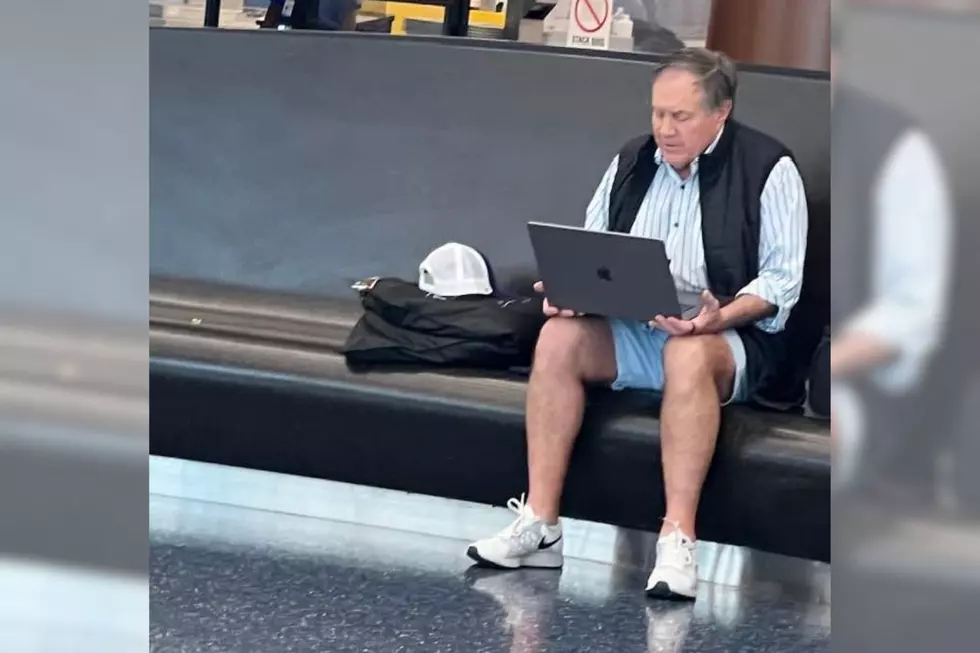
DeLeo: Beacon Hill to Craft Policing Bill, Address Racism
House Speaker Robert DeLeo plans to create an "omnibus" piece of legislation before Aug. 1 that's likely to address policing and other equity issues, he said Wednesday as Gov. Charlie Baker made it clear he does not support defunding police budgets.
Speaking to reporters hours before meeting virtually with the Massachusetts Black and Latino Legislative Caucus Wednesday, DeLeo described the potential legislation that he pledged to develop on Friday when he said the House would take "decisive action" against structural racism. The caucus outlined a 10-point plan last week addressing police brutality and structural racism that DeLeo said is an important starting point for discussions.
"There's no pre-arranged agenda so to speak. But I think a lot of the items probably which are part of the 10-point plan will probably be the subject of discussion," he said. "Can we do a better job in terms of the economy, in terms of making sure that you know, minorities are better represented, have more opportunity for economic advancement?"
With formal sessions scheduled to end for 2020 on July 31, DeLeo said he hoped to work with the Senate to get a bill to Gov. Baker's desk by that time.
Later Wednesday, Senate President Karen Spilka announced the creation of a Senate advisory group on racial justice chaired by Sen. Sonia Chang-Diaz, a member of the Black and Latino Legislative Caucus, and Sen. William Brownsberger. The group, which is tasked with reviewing existing legislation and recommending further policies to address systemic racism, met for the first time Wednesday, Spilka said.
"I believe we have reached a history-making moment in our Commonwealth and that it should not pass without taking action on policing and racial justice this session," the Ashland Democrat said in a statement in which she described herself as "the driving force" behind the promised action.
After swearing in two new representatives, Carol Doherty and Dan Sena, Gov. Charlie Baker said Wednesday that he has been working with the House and Senate, but said he does not support defunding the police, the phrase attached to a movement to redirect public funds assigned to police to other areas of government to benefit minority communities.
"I am reasonably optimistic that they'll do something at some point that relates to state and local government, but I don't believe in slogans as a general rule, and I certainly don't support the whole concept that we should get out of the business of providing public safety to our communities," he said. "I don't support defunding the police."
After talking with members of the Black and Latino Legislative Caucus last Thursday, Baker said Friday that he expects to provide additional details this week on specific proposals to "dramatically improve transparency in law enforcement."
Baker also filed legislation back in January to reform the State Police by allowing for the superintendent to be hired from outside the department, to make it easier to suspend troopers without pay after they've been charged with misconduct, and to create a cadet program that will improve recruitment of candidates from diverse backgrounds. That bill (S 2469) had a hearing in February, and is currently before the full Senate after the deadline for the Committee on Public Safety to make a recommendation passed without action on May 1, according to the bill history on the Legislature's website.
As for reallocating money budgeted for the State Police, DeLeo said it was "premature" to talk about any type of funding as budget talks are still in early stages. House leaders have three weeks left before the deadline to offer a delayed fiscal 2021 spending plan.
"Although we've been dealing with preparing a budget, I think we still have a lot more serious to talk about. I've heard the word defunding on a number of occasions. And to be very honest with you, that word defunding means a lot of different things to a lot of different people," he said. "I can tell you that I've been having trouble getting my hands around it in terms of what exactly we are discussing."
House leaders this week announced support for a bill that would create a commission to study racial disparities in maternal mortality. The Committee on Health Care Financing advanced the bill Monday, sending it to the House Ways and Means Committee.
The killing of George Floyd, a Black man, while in the custody of a white Minneapolis police officer on May 25, has sparked nationwide protests calling on local, state, and federal officials to address structural racism and police brutality. In Massachusetts, protests remain largely peaceful and often number in the hundreds -- several have drawn thousands to the streets of Boston.
Police reform must be part of the answer to protests over racism and police misconduct, Boston Mayor Martin Walsh said Wednesday, but solutions are also needed in other major public policy priority areas.
"My focus is on creating a conversation that can be sustained and lead to permanent solutions and systemic change," Walsh said. "In the past what we've seen is conversations and when the demonstrations stop, the conversation stops. And that's not what we're going to do here in the city of Boston."
During a press conference outside City Hall, Walsh said solutions must go beyond the police and extend to areas like housing, education, economic opportunity and equity in public health.
"Equity is the message of this movement and equity is our top priority," Walsh said. "We want people with heightened risk of any kind, whether due to long-term inequalities, or recent events, to be able to get tested, stay healthy and keep working and moving forward."
Reporters asked Walsh about the possibility of reallocating funds dedicated to city police.
"I can't get specific right now, because we're in the process right now of reworking the budget," the mayor said, noting he planned to meet later Wednesday with city police and budget officials. He said that during his tenure he has made progress on police training, diversity and de-escalation tactics.
"The police department has to evolve and address these issues," Walsh said. "And I think that, in light of Mr. Floyd's murder, I think it really puts a real urgency to have even a deeper look at our practices and how we handle ourselves, on what reviews look like."
Complaints against police officers since 2013 are down 41 percent, Walsh said, while complaints about excessive use of force in the city are down 50 percent and arrests are down 10 percent over the last seven years.
"That's all good numbers, but that doesn't mean that we're perfect by any stretch of the imagination," he said.
Walsh plans to submit a revised city budget next week, reflecting feedback from the City Council, and said the city is looking at a revenue reduction of $65 million to $80 million associated with COVID-19 impacts.
"We're not laying off in the city. I can say that right now," Walsh said. He later added, "I won't be laying any public safety off. I hope I don't have to."
State House News Service

More From WBSM-AM/AM 1420









